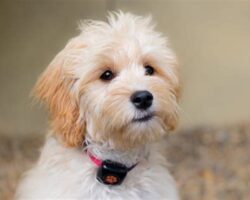Understanding the appeal of small dog breeds
The appeal of small dog breeds is undeniable. These pint-sized pups have become increasingly popular over the years, capturing the hearts of dog lovers everywhere. But what exactly is it about these miniature canines that makes them so appealing? Let’s explore some of the reasons why small dog breeds have won over the hearts of many.
First and foremost, small dog breeds are incredibly cute. Their adorable features, tiny stature, and big eyes make them irresistibly charming. Whether they are sporting a regal coat of fur or flaunting their perky ears, small dogs have a way of melting hearts with their cuteness.
In addition to their adorable appearance, small dog breeds are also known for their portability and convenience. Their small size makes them easy to transport, whether it’s for a trip to the vet, a visit to a friend’s house, or a family vacation. This makes them an ideal choice for individuals or families who have a busy lifestyle but still want the companionship of a furry friend.
Factors to consider when choosing a small dog breed
When it comes to choosing a small dog breed, there are several important factors to consider. Making the right choice requires careful thought and consideration, as it will have a significant impact on both your life and the dog’s well-being. By taking into account various factors such as size, temperament, exercise needs, and health concerns, you can ensure that you find the perfect small dog breed to suit your lifestyle and preferences.
Size: One of the first factors to consider when choosing a small dog breed is the size of the dog. While all small dogs are, by definition, small in size, there can still be significant variations in their actual dimensions. Some small dog breeds can weigh as little as a few pounds, while others may reach up to 30 pounds. Think about how the dog’s size will fit into your living arrangements and lifestyle.
Temperament: Each small dog breed has its own unique temperament and personality traits. Some small breeds are known for being affectionate and outgoing, while others may be more reserved or even prone to aggression. Consider your own personality and lifestyle when choosing a small dog breed with a compatible temperament. If you have children or other pets at home, it’s also important to select a breed that is known to be good with them.
Exercise Needs: While small dogs generally require less physical exercise than larger breeds, it’s still important to consider their activity levels. Some small dog breeds are energetic and require plenty of exercise and mental stimulation to prevent boredom and destructive behaviors. Others may be more sedentary and content with short walks and indoor playtime. Choose a small dog breed that matches your own activity level and ability to provide regular exercise.
| Size | Temperament | Exercise Needs |
|---|---|---|
| Varies | Varies | Varies |
Adaptability and trainability of small dog breeds
The adaptability and trainability of small dog breeds are important factors to consider when choosing a furry companion. Small dogs have the advantage of being versatile and adaptable to various living environments. Whether you live in a small apartment or a large house, a small breed can easily fit into your lifestyle. Moreover, their trainability makes them excellent candidates for obedience training and other disciplines such as agility or therapy work.
Small dog breeds such as Chihuahuas, Pomeranians, and Yorkshire Terriers are known for their adaptability to different living situations. Their compact size allows them to thrive in apartments or houses with limited space. Since they require less room to roam and exercise, they can adjust well to urban environments where outdoor space may be limited. These breeds are also suitable for individuals or families who travel frequently and want a dog that can easily accompany them without much hassle.
When it comes to trainability, small dog breeds can be just as trainable as larger breeds. Their intelligence and eagerness to please their owners make them quick learners. Owners of small dogs often find that these breeds are highly responsive to positive reinforcement training methods such as rewards and praise. This makes training sessions enjoyable for both the dog and the owner. However, it’s important to note that each breed may have its own temperament and some individuals within a breed may be more or less trainable than others.
- Small dog breeds are adaptable to various living environments.
- They can thrive in apartments or houses with limited space.
- Small dogs are suitable for individuals or families who travel frequently.
- They can easily accompany their owners without much hassle.
- Small dog breeds are intelligent and eager to please.
- They tend to be quick learners during training sessions.
| Breed | Adaptability | Trainability |
|---|---|---|
| Chihuahua | High | Medium |
| Pomeranian | High | High |
| Yorkshire Terrier | High | High |
Evaluating the energy levels of small dog breeds
When looking to bring a new furry friend into our lives, one important factor to consider is the energy level of small dog breeds. Every dog has its own unique personality and energy level, and it’s crucial to find a breed that matches your lifestyle and activity level. Some people prefer a laid-back companion, while others enjoy an active and energetic partner. To ensure a harmonious relationship with your four-legged friend, it’s essential to evaluate the energy levels of different small dog breeds before making a decision.
One way to evaluate the energy levels of small dog breeds is by considering their exercise requirements. Exercise is an essential component of a dog’s overall well-being and happiness. Some breeds, like the Beagle or Border Collie, require a significant amount of daily exercise to keep them physically and mentally stimulated. On the other hand, breeds such as the Cavalier King Charles Spaniel or Bichon Frise are content with shorter walks and gentle play sessions. By understanding the exercise needs of different breeds, you can ensure that your new companion gets the right amount of physical activity.
Another aspect to consider when evaluating the energy levels of small dog breeds is their temperament. Every breed has its own temperament traits, and some may be more naturally active and energetic than others. For example, Jack Russell Terriers are known for their high energy levels and love for playing and running. If you lead an active lifestyle and enjoy outdoor activities, a high-energy breed like a Jack Russell Terrier may be a perfect fit. On the other hand, breeds like the Shih Tzu or Pomeranian tend to be more laid-back and require less intense exercise. Understanding the temperament of different small dog breeds can help you find a companion that matches your energy level.
Lastly, consider your own lifestyle and daily routine when evaluating the energy levels of small dog breeds. If you have a busy schedule with limited time for exercise, it may be more suitable to choose a breed with lower energy requirements. Some small breeds, such as the French Bulldog or Pug, are known for their lower energy levels and can adapt well to a more relaxed lifestyle. On the other hand, if you have plenty of time and energy to dedicate to activities and exercise, you may find joy in a higher-energy breed like a Dachshund or Miniature Pinscher. Matching your lifestyle and energy level with that of your potential furry companion is essential for a happy and balanced relationship.
Grooming needs of different small dog breeds
Dogs are undoubtedly one of the most popular pets around the world. They come in all shapes and sizes, each with their own unique personality and needs. When it comes to small dog breeds, one important aspect that potential owners need to consider is grooming. Grooming plays a vital role in the overall health and well-being of these furry companions. In this blog post, we will explore the grooming needs of different small dog breeds and the factors to consider when it comes to maintaining their coats.
Adequate grooming is essential for small dog breeds
Grooming needs can vary greatly among different small dog breeds. Some breeds have thick, double coats that require regular brushing to prevent matting and tangling. Others may have shorter coats that need minimal grooming. Regardless of the specific breed, it is important to establish a grooming routine to keep your little furry friend healthy and happy.
Factors to consider when grooming small dog breeds
When it comes to grooming small dog breeds, several factors need to be taken into consideration. These include the length and type of coat, the dog’s activity level, and any specific grooming requirements. For example, breeds with longer hair may require more frequent brushing to prevent matting, while breeds with shorter hair may need less frequent grooming sessions. Additionally, some breeds may require regular trimming of their nails or cleaning of their ears to maintain their overall hygiene.
The importance of regular grooming sessions
Grooming is not only important for keeping your small dog breed looking good; it also plays a crucial role in their overall health and well-being. Regular grooming allows you to check for any skin issues, fleas, ticks, or other parasites that may be hiding in your pet’s coat. It also helps to distribute natural oils throughout their fur, keeping their skin moisturized and free from dryness or irritation. Moreover, grooming sessions provide an opportunity for bonding with your furry companion and promoting trust and relaxation.
Grooming needs can vary among small dog breeds
Each small dog breed has its own specific grooming needs that should be taken into account. For example, long-haired breeds such as Shih Tzus or Maltese require daily brushing to prevent matting and keep their hair looking healthy. On the other hand, breeds like Chihuahuas with short coats may only require a weekly brush to eliminate loose hair. Some small dog breeds may also require professional grooming to maintain their coats, such as regular trims or haircuts.
Conclusion
Grooming is a crucial aspect of caring for small dog breeds. By understanding the specific grooming needs of your chosen breed, you can ensure that your furry companion is well-maintained, healthy, and happy. Regular grooming sessions not only keep their coat looking luxurious but also allow you to monitor their overall health and build a stronger bond with your pet. Remember, each breed has different grooming requirements, so be sure to research and consult with a professional groomer to provide the best care for your small dog.
Health concerns specific to small dog breeds
When it comes to owning a small dog breed, it’s important to be aware of the unique health concerns they may face. While small dogs are generally known for their adorable and compact size, they can be more prone to certain health issues compared to larger breeds. Understanding these potential health concerns can help you better care for your furry friend and ensure they live a happy and healthy life.
One common health concern in small dog breeds is dental problems. Due to their small size, their teeth are often crowded in their mouths, making them more susceptible to plaque buildup, tooth decay, and periodontal diseases. It is crucial to establish a regular dental care routine for your small dog, including daily teeth brushing and professional dental cleanings.
Another significant health concern for small dog breeds is obesity. These little pups have a slower metabolism compared to larger breeds, and excessive weight gain can put additional stress on their joints and organs. It’s important to monitor their diet, provide them with appropriate portion sizes, and engage them in regular exercise to keep them fit and maintain a healthy weight.
- Dental problems: Small breeds may experience dental issues due to crowded teeth.
- Obesity: Being prone to weight gain, small dogs need a balanced diet and regular exercise to prevent obesity.
| Health Concerns | Causes | Preventive Measures |
|---|---|---|
| Dental problems | Crowded teeth | Regular teeth brushing and professional cleanings |
| Obesity | Slow metabolism | Controlled portion sizes and regular exercise |
Aside from dental problems and obesity, small dog breeds may also be prone to certain genetic health conditions. For example, patellar luxation, a condition where the kneecap dislocates, is more common in small breeds due to their anatomy. Regular joint health checks by a veterinarian can help prevent and detect such issues early.
Another genetic health concern specific to small breeds is tracheal collapse. The trachea, or windpipe, in these dogs can be weak and easily collapse, causing breathing difficulties. Using a harness instead of a collar and avoiding activities that strain the trachea can help prevent this condition from worsening.
In addition to these breed-specific health concerns, small dogs are also more vulnerable to certain environmental hazards. They may be more sensitive to extreme temperatures, so it’s crucial to protect them from excessive heat or cold. Additionally, they may have a higher risk of being injured by larger dogs or accidentally stepped on, so close supervision and careful handling are important.
- Patellar luxation: Small breeds may be prone to dislocation of the kneecap.
- Tracheal collapse: Weak windpipe can cause breathing difficulties.
While small dog breeds bring joy and companionship to our lives, it’s essential to be proactive in addressing their specific health concerns. Regular veterinary check-ups, proper dental care, a balanced diet, and regular exercise are all vital in maintaining their overall well-being. By being aware of these potential health issues and taking appropriate preventive measures, you can ensure your small four-legged friend lives a happy, healthy, and long life.
| Health Concerns | Causes | Preventive Measures |
|---|---|---|
| Patellar luxation | Anatomical factors | Regular joint health checks by a veterinarian |
| Tracheal collapse | Weakened windpipe | Use a harness instead of a collar |
Matching lifestyle and personality with small dog breeds
When it comes to choosing a small dog breed, it is essential to consider not only their physical characteristics but also their compatibility with your lifestyle and personality. Small dog breeds vary widely in terms of energy levels, exercise needs, grooming requirements, and temperament. By understanding what you want in a furry companion and evaluating your own lifestyle and personality traits, you can find the perfect match that will bring joy and companionship into your life.
1. Identifying your lifestyle and needs
The first step in finding the right small dog breed is to identify your lifestyle and needs. Are you an active person who enjoys daily outdoor activities? Or do you prefer a more relaxed and low-key lifestyle? Do you have a busy schedule and limited time for exercise and grooming? Answering these questions will help you determine the energy level, exercise needs, and grooming requirements you can accommodate.
2. Understanding different personality traits
Small dog breeds come with various personality traits. Some breeds are known to be outgoing and social, while others may be more reserved or independent. Consider whether you prefer a dog that loves to meet new people or a more loyal, one-person companion. Think about your home environment as well; some small dogs do well in apartments, while others require a spacious yard to roam and play.
3. Researching specific small dog breeds
After assessing your lifestyle and personality needs, it’s time to research specific small dog breeds that align with your preferences. Look for breeds that match your energy levels, exercise capabilities, and grooming routines. Consider factors such as size, coat type, and any specific health concerns that may be associated with certain breeds.
By doing thorough research and understanding your own lifestyle and personality, you can find a small dog breed that will not only be a great companion but also fit seamlessly into your daily routine. Remember, each dog is unique, and it’s crucial to spend time with potential breeds to ensure a good match. With the right small dog breed by your side, you’ll have a loving and loyal companion that brings endless joy into your life.
Frequently Asked Questions
1. What factors should I consider when choosing a small dog breed?
When choosing a small dog breed, it’s important to consider factors such as the dog’s temperament, exercise needs, grooming requirements, and compatibility with your lifestyle and living situation.
2. Are small dog breeds adaptable and trainable?
Yes, many small dog breeds are adaptable and trainable. However, it’s important to note that each dog is unique and may have different levels of trainability. Consistent training and positive reinforcement are key for successful training with small dog breeds.
3. How do I evaluate the energy levels of small dog breeds?
Evaluating the energy levels of small dog breeds involves considering the breed’s exercise needs and activity level. Some small dog breeds, such as Jack Russell Terriers, are high-energy and require plenty of exercise, while others, like the Cavalier King Charles Spaniel, have a more moderate energy level.
4. What grooming needs do different small dog breeds have?
Grooming needs can vary among small dog breeds. Some small breeds, like Shih Tzus and Bichon Frises, have long, flowing coats that require regular brushing and professional grooming. Others, such as the Chihuahua or the Boston Terrier, have shorter coats and may require less grooming maintenance.
5. Are there any specific health concerns associated with small dog breeds?
Yes, certain health concerns are more commonly seen in small dog breeds, such as dental issues, patellar luxation, and collapsing trachea. These breeds may also be prone to obesity, so it’s important to provide a balanced diet and regular veterinary care to maintain their health.
6. How can I match my lifestyle and personality with a small dog breed?
Matching your lifestyle and personality with a small dog breed involves considering factors such as your activity level, living conditions, and preferences for grooming and exercise. Researching breeds and spending time with different dogs can help you find a breed that aligns with your lifestyle and personality.
7. What are the benefits of owning a small dog breed?
Owning a small dog breed can have several benefits. They are typically easier to handle and require less physical space than larger breeds. They can also be great companions for those with limited mobility or living in smaller homes. Additionally, many small breeds are known for their loyalty, attentiveness, and ability to form strong bonds with their owners.





